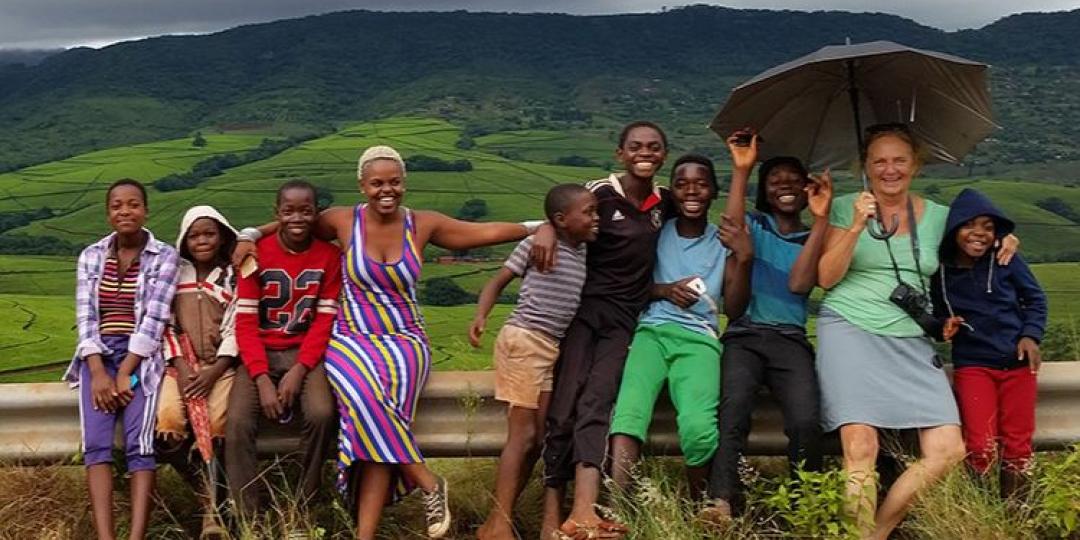The UNWTO’s focus on measuring so-called tourism revenue ‘leakages’ can detract from the immense value that responsible tourism providers are generating for communities, particularly in rural areas, warn industry leaders.
Witsieshoek Mountain Lodge – an 88-bed, community-owned establishment in South Africa’s northern Drakensberg – was named Overall Global Winner of the WTM Responsible Tourism Awards in London last week. Managed by Transfrontier Parks Destinations (TFPD), whose portfolio includes three other star-graded lodges in rural areas of South Africa, Witsieshoek was recognised for its exceptional efforts in generating economic benefits of R77.7m (€4.3m) since an extensive refurbishment in 2011.

TFPD’s Eleanor Muller argues that measurements of tourism revenue leakages (broadly defined as the amount of tourist spend that doesn’t stay in the country visited), are often over-generalised and taken out of context.
“What matters is what we do with the money that does come into our area. This is why we measure economic benefit based on a number of different criteria, including salaries and wages, local procurement and the value of the assets owned by the community,” says Muller.
At the recent African Tourism Leadership Forum in Gaborone, UNWTO Regional Director for Africa Elcia Grandcourt, highlighted that, on average, of every US$100 spent on a vacation tour by a tourist from a developed country, only about $5 actually stayed in the developing country's economy.
However, some industry role-players believe that the suggestions that tourism leaves minimal economic benefits in host countries (with multi-national companies and internationally-based tour operators benefiting instead) can be highly detrimental.
Muller points to a report by Jonathan Mitchell and Caroline Ashley of the Overseas Development Institute, who outline the potential problems with reporting on tourism revenue leakages.
According to Mitchell and Ashley, high leakage figures may “panic decision-makers into thinking that tourism is a worse alternative than other, less good, options,” and could “lead tourism policy-makers to focus on plugging ‘leakages’ to external economies, instead of the more productive avenue of opening up linkages within their economy”.
“There should be a measure of linkages relating to how tourism activity benefits the local economy as a whole. If, for example, tourists have no option but to fly in on an international airline as opposed to a local one, then we are getting more visitors spending money in our destination and contributing to the economy. We would rather have double the number of tourists on somebody else’s airline than half the tourists on a local airline,” says Muller.
A community-based blueprint
TFPD’s linkages-based model at Witsieshoek and at other lodges such as the 24-bed !Xaus Game Lodge in the Kgalagadi Transfrontier Conservation Area, has proved to be a successful blueprint for tourism that provides widespread benefits for local economies.
The R77.7m (€4.3m) total regional economic benefit generated for the Sesotho Batlokoa community at Witsieshoek comprises R50m (€2.8m) spent on local procurement, and R52m on staff salaries, rental and lodge upgrades, minus R24m (€1.3m) for the cost of maintaining assets.
The lodge employs 53 staff members (from an initial 26 in 2011), 96% of whom come from the local community, and a rolling internship programme ensures that the employment pipeline remains healthy.
Community members who were recruited for the refurbishment of the lodge, including carpet weavers, furniture-makers and other artisans, have also gained valuable skills that have opened them up to new opportunities. A case in point is craftsman Thabo Molete, who supplied furniture to Witsieshoek and is now listed on the government’s central supplier database system.

“These suppliers have new capacity to grow their businesses in the future. That type of benefit is massive and highly sustainable and is another way that linkages can benefit the overall economy,” Muller says.
Similar success stories can be found at !Xaus Lodge, where a total of R31m (€1.7m) in regional economic benefit has been recorded.
Focus on the regional context
Instead of focusing on broad-based global figures, Muller urges tourism suppliers to home in on what they can control, and on the realities of what is truly happening on the ground.
“You have to measure what you can, and not work on broad-based averages and assumptions. Let us as the individuals at the coal-face measure and check for ourselves that we are generating an economic return that is fair for the areas where we work.”
While industry should seek to spend as much money as possible with local tour operators, DMCs and other suppliers, in the South African context, this sometimes just simply isn’t realistic, Muller points out.
“We can see at the moment, post-COVID, that a huge swathe of the local industry has dropped out. We have an incredible cohort of trade partners, particularly in Europe, who have invested deeply in understanding our country and sourcing tourists. The key factor for us is getting the guests in, and it is not necessarily a bad thing to use international operators to do so,” says Muller.























